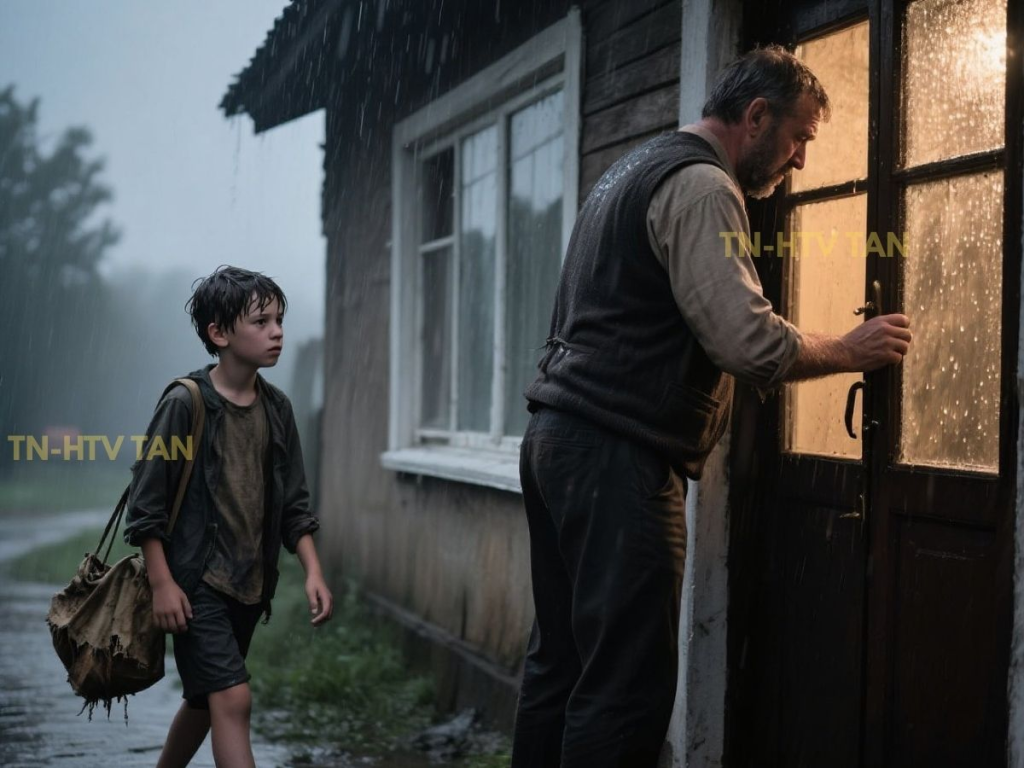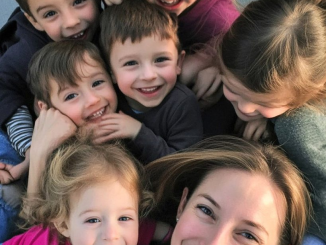
“Go away. You are not my son. My wife is dead. I have no obligation to take care of you. Go wherever you want.”
He didn’t cry.
He didn’t beg.
He just bowed his head, picked up his broken backpack, and walked away silently—without saying a word.
Ten years later, when the truth came out, I wished more than ever that I could turn back time.
My name is Rajesh, and I was 36 when my wife, Meera, died of a sudden stroke.
She left me alone—but also a 12-year-old boy named Arjun.
But Arjun wasn’t my biological son.
He was Meera’s son from a previous relationship.
When I married Meera at 26, she had already suffered great heartbreak—an unnamed love, a pregnancy she had faced alone.
Back then, I admired her strength.
I told myself I was noble for “accepting” her and her son.
But love that doesn’t come from the heart… doesn’t last.
I raised Arjun as a responsibility—nothing more.
Everything fell apart when Meera died.
There was no one left to keep me connected to the boy.
Arjun was always quiet, distant, respectful.
Perhaps he knew—deep down—that I never truly loved him.
A month after the funeral, I finally told him:
“Go away. Whether you live or die, I don’t care.”
I expected him to cry. To beg.
But he didn’t.
He left.
And I felt nothing.
I sold the house and moved.
Life went on. The business prospered. I met another woman—no baggage, no children.
For a few years, I sometimes thought about Arjun.
Not out of concern—just curiosity.
Where would he be? Was he still alive?
But time erases even curiosity.
A 12-year-old boy, alone in the world—where could he go?
I didn’t know.
I didn’t care. I even told myself:
“If he died, maybe it was for the best. At least he wouldn’t suffer anymore.”
Ten years later.
I received a call from an unknown number.
“Hello, Mr. Rajesh? Would you be able to attend the opening of the TPA Gallery on MG Road this Saturday?
Someone really wants to see you there.”
I was about to hang up—but the next sentence froze me.
“Don’t you want to know what happened to Arjun?”
My heart clenched.
That name—Arjun—I hadn’t heard it in ten years.
I paused. Then I replied, curtly:
“I’ll come.”
The gallery was modern and bustling with people.
I entered, feeling out of place.
The paintings were striking—oil on canvas, cold, distant, unsettling.
I read the artist’s name: T.P.A.
Those initials struck me.
“Hello, Mr. Rajesh.”
A tall, slender young man, dressed simply, stood before me—his gaze deep, inscrutable.
I froze.
It was Arjun.
He wasn’t the frail boy I had abandoned.
Before me stood a composed, successful man. Familiar, yet so distant.
“You…” I stammered. “How…?”
He interrupted me—his voice calm, cutting like glass.
“I just wanted you to see what my mother left behind.
And what you chose to abandon.”
He led me to a canvas covered with red cloth.
“It’s called Mother. I’ve never shown it before.
But today I want you to see it.”
I lifted the cloth.
There she was—Meera.
In a hospital bed, pale and frail.
In her hand, a photo—of the three of us, on the only trip we ever took together.
My knees buckled. Arjun’s voice didn’t waver:
“Before she died, she wrote a journal.
She knew you didn’t love me.
But she still hoped—that one day you would understand.
Because… I’m not another man’s son.”
I stopped breathing.
“What…?”
“Yes. I’m your son.
She was already pregnant when she met you.
But she told you it was someone else’s—to test your heart.
And then, it was too late to confess.”
“I found the truth in her journal. Hidden in the old attic.”
The world crumbled around me.
I had rejected my own son.
And now, he stood before me—dignified, successful—while I had lost everything.
I had lost my son twice.
And the second time… forever.
I slumped into a corner of the gallery, shattered.
His words echoed like knives in my soul:
“I am your son.”
“She feared you would stay only out of duty.”
“She chose silence… because she loved you.”
“You left because you feared responsibility.”
I once thought I was noble for “accepting” another man’s child.
But I was never truly kind. Never fair. Never a father.
And when Meera died, I discarded Arjun—as if he were worthless.
Without knowing… that he was my own flesh and blood.
I tried to speak.
But Arjun had already turned away.
I ran after him.
“Arjun… wait… If I had known—if I had known you were mine—”
He looked back. Calm. But distant.
“I’m not here for your apologies.
I don’t need your recognition.
I just wanted you to know—that my mother never lied.
She loved you. And she chose silence… so you could choose to love freely.”
I couldn’t say anything.
“I don’t hate you.
Because if you hadn’t pushed me away…
I might never have become who I am today.”
He handed me an envelope. Inside—a copy of Meera’s journal. With her shaky handwriting, she had written:
“If you ever read this—please forgive me.
Love,






Leave a Reply